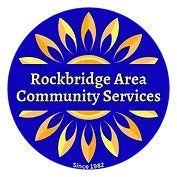The Journey to Healing: Overcoming Mental Health Struggles
Sometimes, the road to recovery from mental health challenges can seem overwhelming. It’s a process that requires patience, persistence, and hope. While no two journeys are the same, there are steps and strategies that can help move toward healing. This guide is designed to offer encouragement and practical advice as you work through your struggles and build a more fulfilling life.
Recognizing the Need for Help
The first step on this path is understanding when help is needed. Mental health struggles often feel isolating, making it hard to reach out or even recognize the signs that something is off. If feelings of sadness, anxiety, or overwhelm persist and begin to interfere with daily life, it’s important to acknowledge these signals.
Recognizing the need for support is not a sign of weakness. It speaks to a deep strength—the willingness to confront what’s difficult and take the steps necessary for change. Remember, acknowledging that you need help is the foundation of healing.
Seeking Support and Building a Support Network
Once you’ve identified that help is needed, the next step is to reach out for support. Talking to trusted individuals, whether they are family, friends, or colleagues, can provide clarity and comfort. Sharing how you feel helps lift the burden of carrying it all alone and opens the door to understanding and empathy.
If professional intervention is an option, reaching out to a therapist or counselor can be incredibly beneficial. These professionals provide tools to help manage difficult emotions and work through underlying causes. Furthermore, support groups or community organizations can connect you with others who understand and validate your experiences. Building a network of support strengthens your foundation for recovery.
Developing Healthy Habits for Recovery
Recovery is not just about addressing mental or emotional challenges, but also about cultivating healthy daily habits that nurture both mind and body. Establishing routines promotes stability during periods of uncertainty.
Prioritize habits that promote mental well-being, such as regular exercise, maintaining a balanced diet, and getting enough rest. Creative outlets like journaling, painting, or music can also provide a safe space for emotional expression. Mindfulness practices and relaxation techniques, such as meditation or breathing exercises, help ground you in the present moment, reducing feelings of anxiety and overwhelm.
Consistency in these habits won’t bring change overnight, but over time, small intentional actions build resilience and strength.
Accepting Setbacks as Part of the Process
Recovery is rarely a straight line, and setbacks may occur along the way. These moments can feel frustrating, but it’s important to remember that temporary struggles do not erase progress. Healing is a process that involves learning and growth, even through missteps.
Instead of approaching setbacks with self-criticism, try to practice self-compassion. Recognize that these experiences are part of being human, and they can provide important information about what you need to continue moving forward. Use them as opportunities to assess what’s working and where adjustments can be made.
Celebrating Progress and Milestones
Acknowledging your progress is an essential part of maintaining motivation and building confidence. Every small step you take toward recovery is worth celebrating, whether it’s overcoming fear, completing a task that once felt impossible, or simply getting through a tough day.
Take time to reflect on how far you’ve come. This could involve writing milestones in a journal or sharing successes with a trusted friend or mentor. Celebrating these victories serves as a reminder of your resilience and provides encouragement to continue working toward your goals.
Moving Forward with Hope
Healing from mental health struggles is a deeply personal and often challenging process, but it is also a powerful act of self-care and empowerment. By recognizing the need for help, building a support network, developing healthy habits, and celebrating even the smallest victories, you can create a path forward filled with hope and possibility.
While the process may not always be easy, with time and commitment, it can lead to a stronger, more compassionate understanding of yourself and your abilities. Remember, you are not alone in your struggles, and there is help and hope available to guide you as you continue on your unique and worthwhile journey to healing.
Contact Rockbridge Area Community Services today to learn more.



